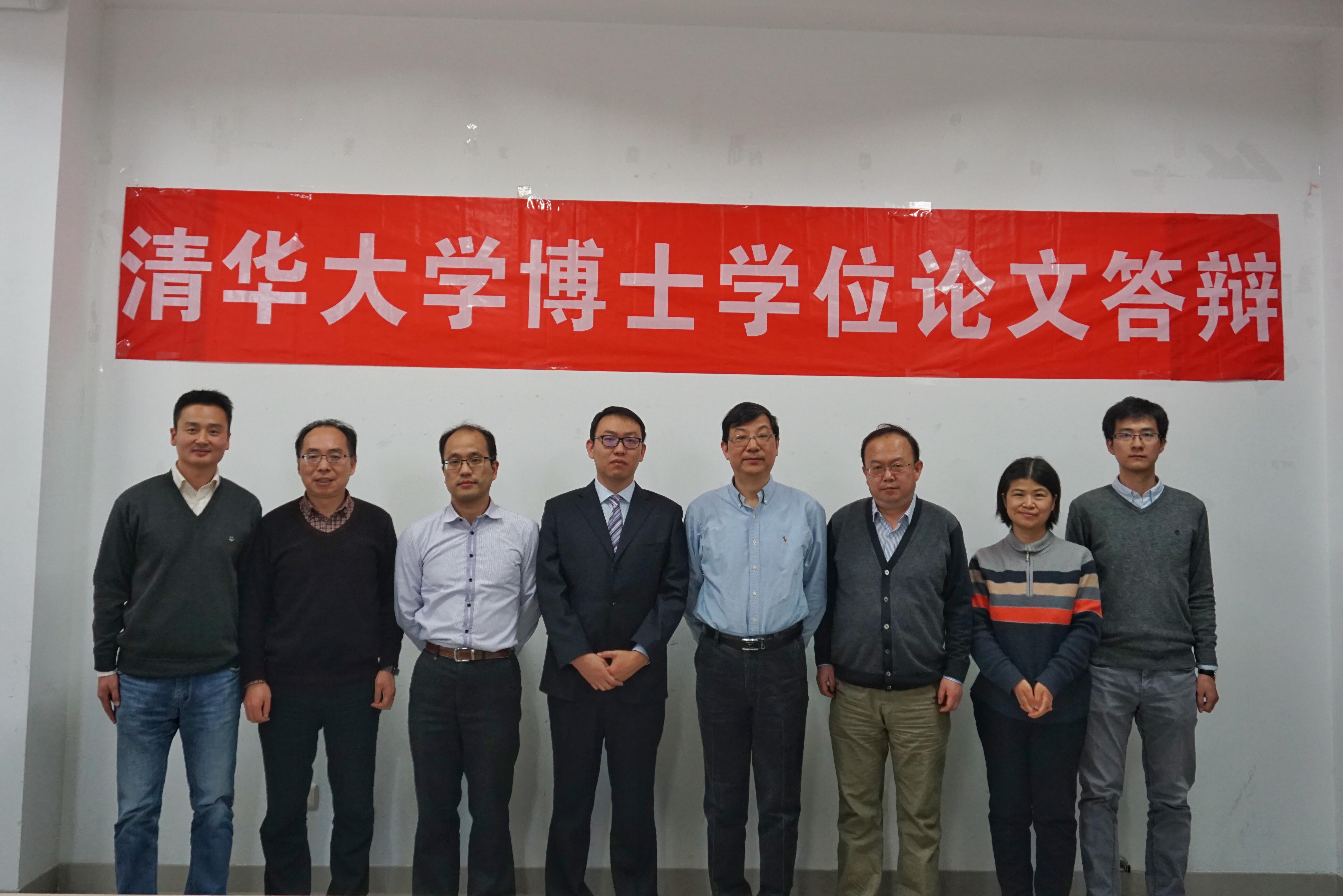
Author: wanglu
Xu group attended the 31st CCS Congress
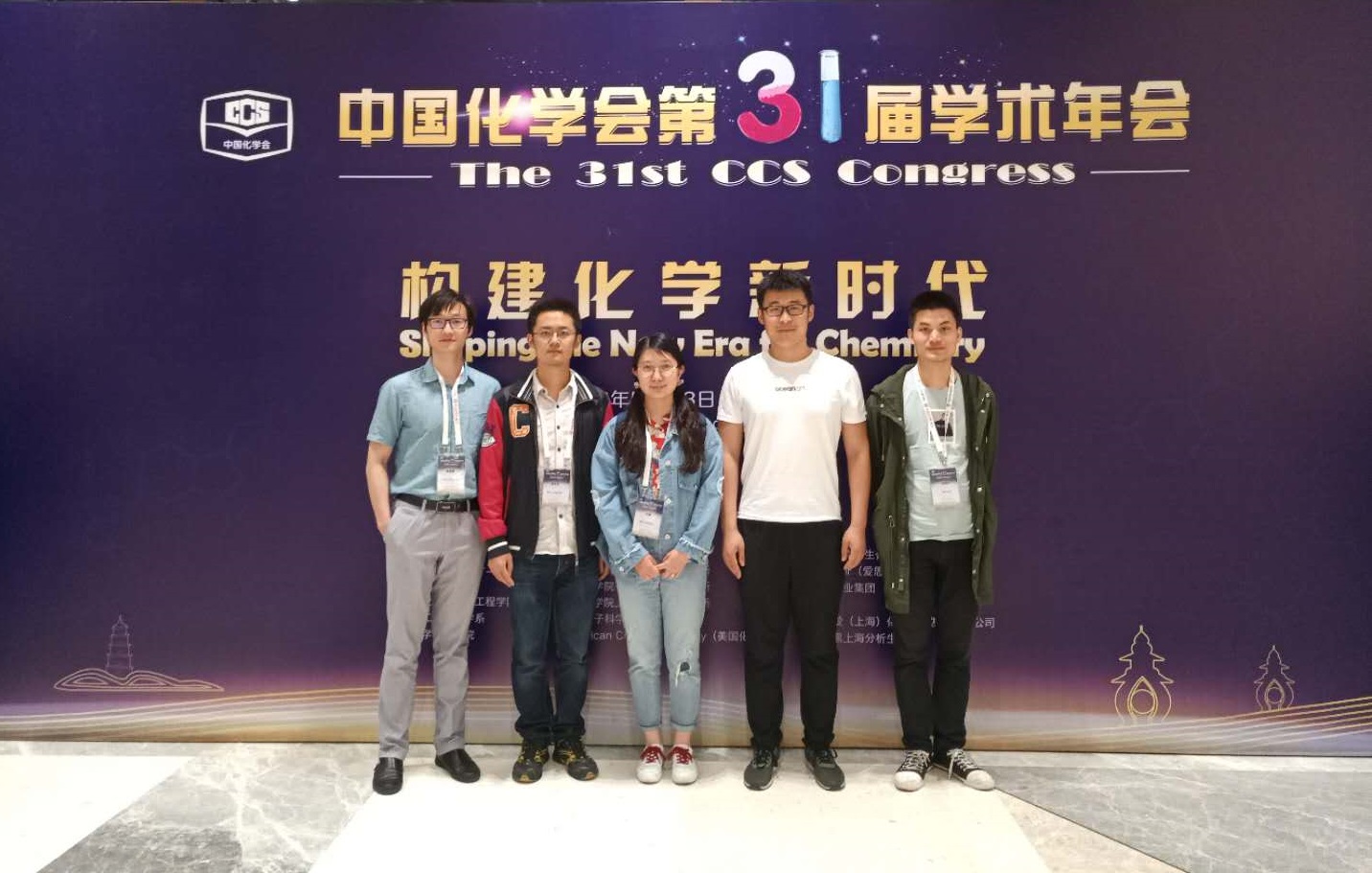
On Mar. 5th – 8th 2018, Prof. Huaping Xu and Lu Wang, Tianyu Li, Jiahao Xia, Chenxing Sun and Cheng Liu attended the 31st CCS Congress held in Hangzhou, Zhejiang.
Prof. Huaping Xu gave an invited presentation of “Dynamic Chemistry of Selenium” on Mar. 6th.
Lu Wang gave poster presentation on Mar. 6th. Tianyu Li, Jiahao Xia and Chenxing Sun gave poster presentation on Mar. 7th, respectively.
Lu Wang received “Best Poster Award”.
More
Joint group meeting with Huo’s group
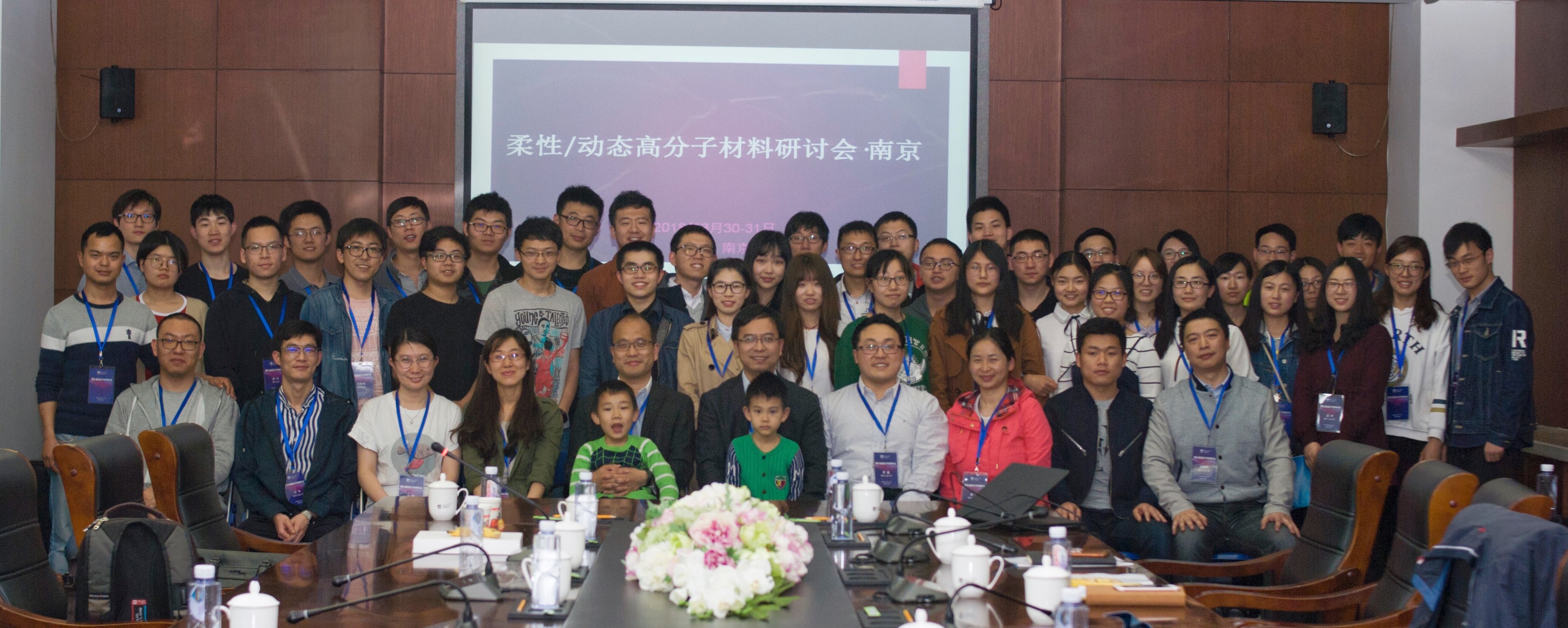
On Mar. 31st, 2018, Xu's group and Prof. Fengwei Huo's group held a joint group meeting in Nanjing Tech University, Nanjing.
At the meeting, five students from each group gave presentations. Students from Xu's group introduced dynamic chemistry and responsive systems, students from Huo's group introduced metal-organic framework and flexible electronic devices.
More
Highly Fluorescent Chiral N-S-Doped Carbon Dots from Cysteine: Affecting Cellular Energy Metabolism
Feng Li, Yiye Li, Xiao Yang, Xuexiang Han, Yang Jiao, Taotao Wei, Dayong Yang, Huaping Xu and Guangjun Nie
Angew. Chem. Int. Ed., 2018, 57, 2377-2382
Cysteine-based chiral optically active carbon dots (CDs) and their effects on cellular energy metabolism, which is vital for essential cellular functions, have been barely reported. A green and effective synthesis strategy for chiral N-S-doped CDs (fluorescence quantum yield ca. 41.26 %) based on hydrothermal treatment of lord-cysteine at as low as 60℃ has been developed. This suggested that cysteine was instable in aqueous solutions and ac...
More
Prof. Huaping Xu enrolled in Leading Talent of National High-level personnel of special support program (” people plan “)
Prof. Huaping Xu enrolled in Leading Talent of National High-level personnel of special support program (" people plan ").
More
Prof. Mihail Barboiu visited Tsinghua University and gave a lecture
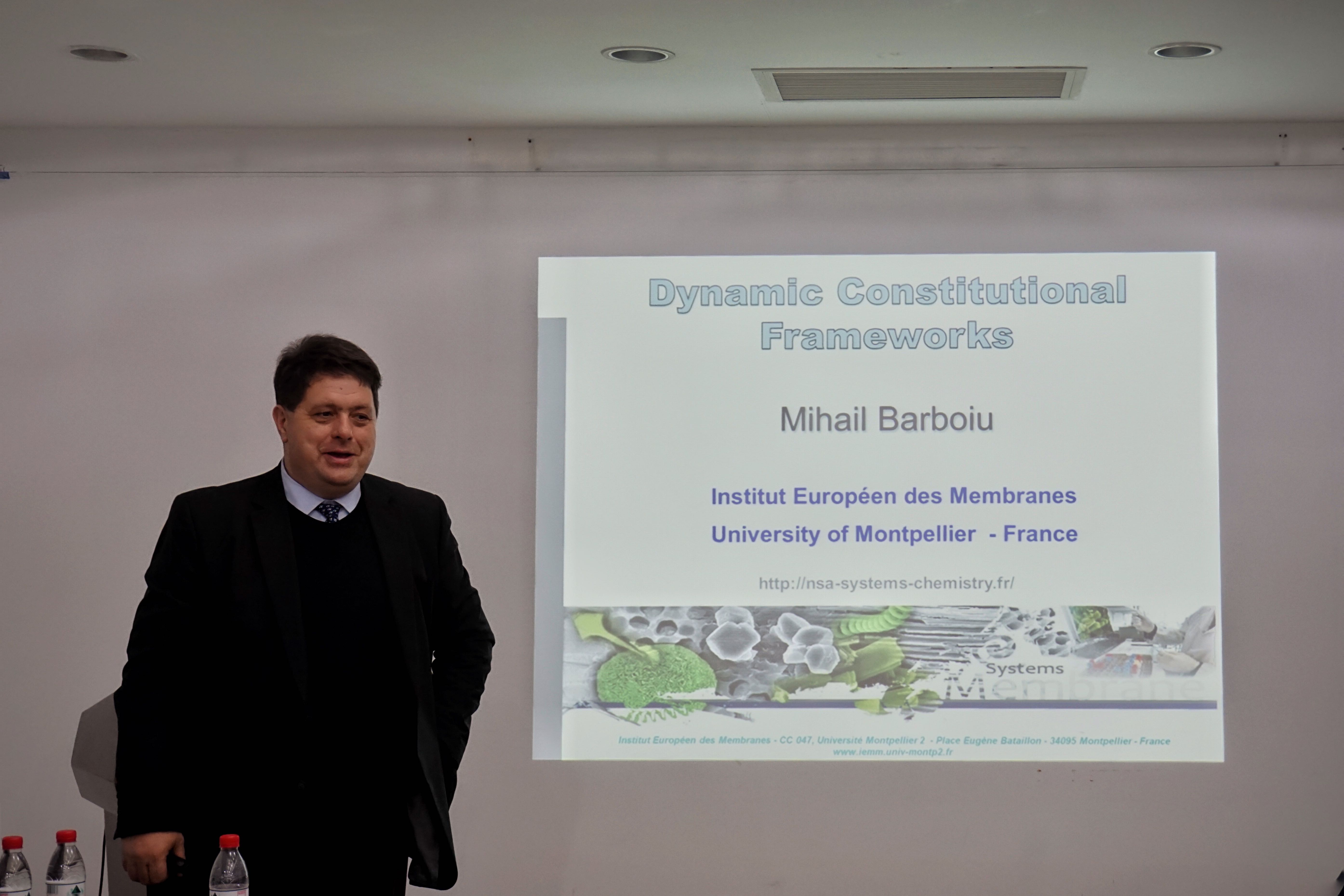
On Jan. 4th, 2018, Prof. Mihail Barboiu from University of Montpellier, France visited Tsinghua University and gave a lecture about “Dynamic constitutional Frameworks”.
In the afternoon, Shaobo Ji, Lu Wang, Tianyu Li, Jiahao Xia and Chenxing Sun introduced their work to Prof. Mihail Barboiu, respectively.
More
Mr. Shaobo Ji passed his Ph.D. dissertation defense
Xu group attended the 15th Pacific Polymer Conference
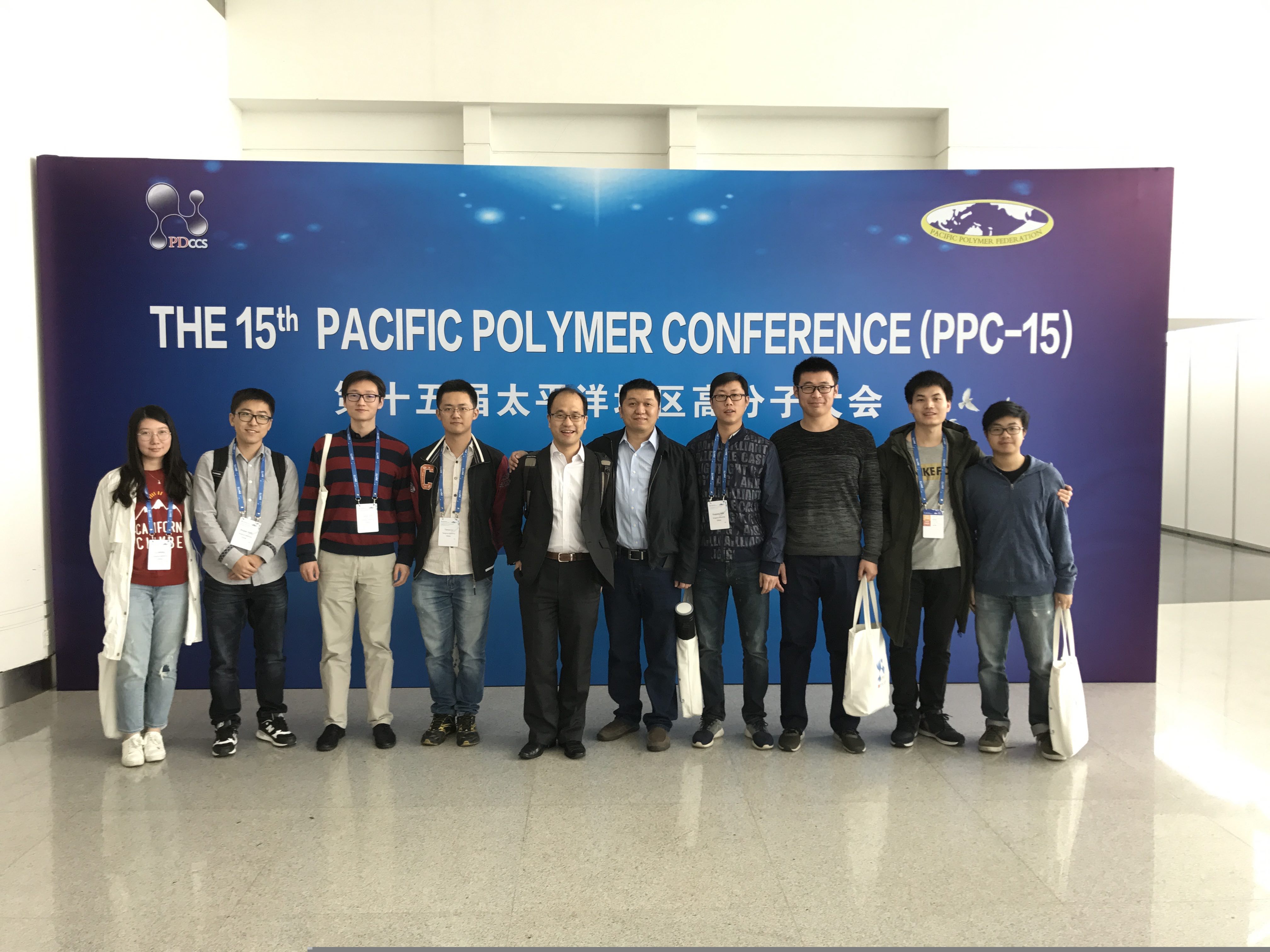
Dec. 11th – 14th 2017, Prof. Huaping Xu and Shiqian Gao, Shaobo Ji, Lu Wang, Tianyu Li, Jiahao Xia, Fuqiang Fan, Chenxing Sun, Wentian Xiang and Cheng Liu attended the 15th Pacific Polymer Conference held in Xiamen, Fujian.
Prof. Huaping Xu gave an invited presentation of “Responsive Selenium-Containing Polymers” on Dec. 11th.
Shaobo Ji, Lu Wang, Tianyu Li, Jiahao Xia, Fuqiang Fan and Chenxing Sun gave poster presentation , respectively.
Tianyu Li received “Best Poster Award”.
More
Dr. Jia Niu visited Tsinghua University and gave a lecture
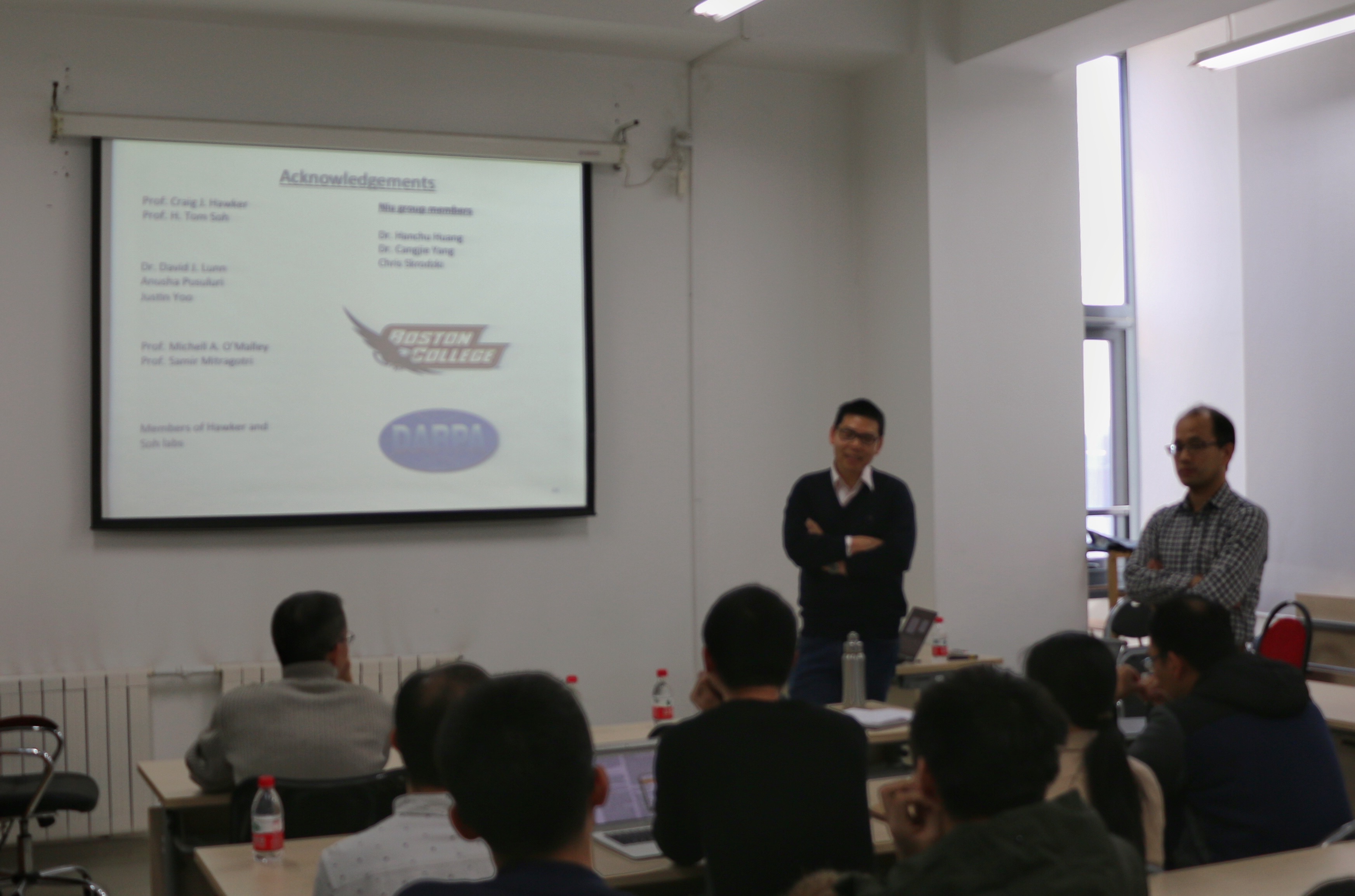
On Dec. 8th, 2017, Dr. Jia Niu from Boston College – Boston, USA visited Tsinghua University and gave a lecture about “Rapid, light-mediated controlled radical polymerization with improved biocompatibility”.
More
Self-assembly Regulated Anticancer Activity of Platinum Coordinated Selenomethionine
Tianyu Li, Wentian Xiang, Feng Li and Huaping Xu
Biomaterials, 2018, 157, 17-25
It is urgently desired that self-assembly methods can be used to develop smart nanomedicines with adjustable anticancer activity and concise structure. Herein, we design carrier-free small molecule assemblies of platinum coordinated selenomethionine, which exhibit adjustable anticancer activity regulated by their self-assembly behaviors. The small molecule assemblies are prepared by coordination of selenomethionine esters with cisplatin. Their self-assembly behaviors can be tuned by esterification between sel...
More

